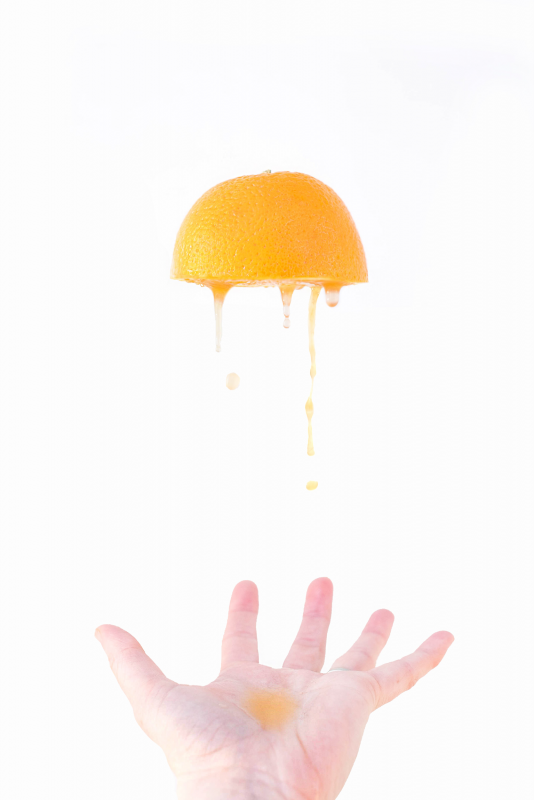Nutrition FAQs
What foods should I avoid when I'm pregnant?
There are a lot of foods to avoid and that list can constantly change, so from time to time, we recommend that you check with foodsafety.gov to see what the latest research tells us. Here are the basic foods to avoid:
- Raw eggs and any foods containing raw eggs, such as cookie dough and cake batter, eggnog, homemade ice cream, Caesar dressings, Tiramisu, and Hollandaise sauce. Cook all eggs until the yolk is firm (about 160°F).
- Raw seafood, undercooked meat, and poultry. Also, avoid any remade meat, seafood salad, or pates. Reheat hot dogs and lunch meat. Be careful with smoked meats — heat to 165°F before eating or choose canned, shelf-stable packages.
- Anything unpasteurized, including milk, juice, cider, and soft cheeses like feta, brie, camembert, and quest blanco or fresco.
- High-mercury fish, including mackerel, swordfish, shark, marlin, orange roughy, and bigeye tuna. Other fish can be eaten either once (grouper, snapper, canned tuna) or two to three times (haddock, salmon, tilapia) per week, depending on their mercury levels.
- Raw or undercooked sprouts, including alfalfa, clover, mung bean, and radish sprouts.

When should I start taking prenatal vitamins?
The ideal time for a woman to start taking prenatal vitamins is before she gets pregnant—at least three months before. That’s because having enough folic acid in the body can prevent some neural tube defects that can form in a fetus before a woman even knows she is pregnant. Women who weren’t planning ahead shouldn’t worry. Just begin taking prenatal vitamins as soon as possible.
Which prenatal vitamins should I take?
Some doctors recommend a particular prenatal vitamin for their patients or direct that certain nutrients be present based on the patient (e.g., a vegetarian might need a supplement containing the Omega 3 fatty acids naturally found in meat and fish). The main ingredients to look for are:
- Folic acid
- Iron
- Calcium
- Vitamin D
- Other nutrients that might be beneficial are vitamins A, E & C, zinc, iodine, and copper.
Is there a particular pregnancy diet I should follow?
Each pregnant woman is unique and should talk to their doctor or midwife about a healthy diet, which will likely contain: fruits and vegetables, lean proteins (fully cooked), whole grains, and dairy (pasteurized). Limit caffeine and avoid alcohol. Plus follow all the recommended food restrictions during pregnancy.
What healthy foods should I eat when I'm pregnant?
Here are some examples of healthy foods to eat during pregnancy:
- Citrus fruits are particularly high in folic acid and vitamin C.
- Choose leafy green vegetables like kale or bok choy, but avoid uncooked sprouts.
- Look for whole-grain breads, pastas, rice, and fortified or enriched cereals.
- Meat, poultry, low-mercury fish, eggs, tofu and dried beans, peas, and nuts.
- Dairy (make sure it is pasteurized). Milk, yogurt, cheese, eggs (cook until yolk is firm).
Should I continue to take prenatal vitamins after my baby is born?
Most doctors recommend women that continue taking their prenatal vitamins after birth, for as long as they are breastfeeding. Women who are not breastfeeding can speak with their doctors about whether another supplement will be more beneficial.
Can I eat sushi while I'm pregnant?
Both the U.S. Food and Drug Administration (FDA) and the Centers for Disease Control (CDC) recommend that pregnant women avoid eating any raw or undercooked fish during pregnancy—including sushi. That’s because fish and seafood that is not cooked to at least 145°F can contain harmful parasites.